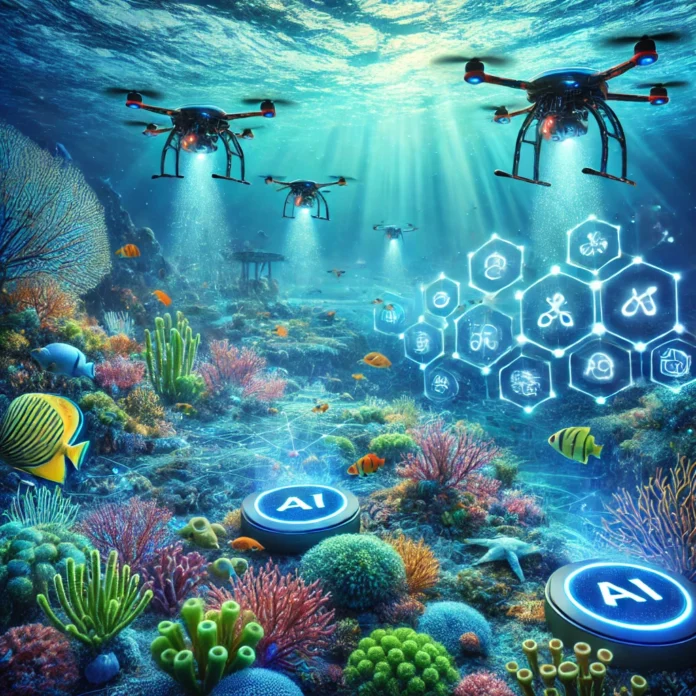The health of the world’s oceans is in crisis. Overfishing, pollution, and climate change are devastating marine ecosystems, threatening biodiversity and the livelihoods of millions. Coral reefs, often referred to as the “rainforests of the sea,” are particularly vulnerable. Artificial Intelligence (AI) is emerging as a vital tool in marine conservation, offering innovative ways to monitor, protect, and restore ocean habitats. By leveraging AI, scientists and conservationists can address challenges more effectively and ensure a sustainable future for marine life.
Monitoring Coral Reefs with AI
Coral reefs support about 25% of all marine species, yet they face unprecedented threats from rising sea temperatures, acidification, and pollution. AI-powered systems are being used to monitor these ecosystems in real-time.
- Underwater Imaging: AI tools like CoralNet analyze thousands of images of coral reefs to identify species, detect signs of bleaching, and track changes over time. This automation saves researchers countless hours and allows for more comprehensive monitoring.
- Acoustic Monitoring: AI algorithms analyze underwater soundscapes to monitor reef health. Healthy reefs produce a unique “crackling” sound due to vibrant marine life, while degraded reefs are much quieter. AI systems can detect these audio patterns to assess ecosystem vitality.
Combating Illegal Fishing
Overfishing and illegal fishing practices are among the greatest threats to marine biodiversity. AI helps combat these activities by improving surveillance and enforcement.
- Satellite Monitoring: Platforms like Global Fishing Watch use AI to analyze satellite data and track fishing vessel movements. By identifying suspicious activity in real-time, authorities can intervene more effectively.
- Behavioral Analysis: AI models predict illegal fishing hotspots by analyzing historical data, enabling targeted patrols and resource allocation.
Restoring Marine Ecosystems
AI is also playing a role in actively restoring damaged ecosystems, including coral reefs.
- 3D Mapping for Restoration: AI-powered drones and robots create high-resolution maps of damaged reef areas, identifying suitable sites for coral transplantation.
- Robotic Coral Planting: Robots like RangerBot and LarvalBot plant coral larvae on degraded reefs with precision, accelerating the recovery process. These robots can operate in conditions too challenging for divers, making restoration efforts more scalable.
Protecting Marine Biodiversity
AI assists in tracking and protecting marine species, from large mammals like whales to tiny plankton that form the base of the ocean food chain.
- Image Recognition for Species Identification: AI analyzes footage from underwater cameras to identify and count species, providing data on population health and migration patterns.
- Acoustic Identification: AI systems detect specific animal calls, such as whale songs or dolphin clicks, enabling researchers to monitor populations without intrusive methods.
Challenges and Ethical Considerations
While AI offers immense potential, its use in marine conservation is not without challenges:
- Cost Barriers: Advanced AI tools can be expensive, limiting their adoption in developing regions with rich marine biodiversity.
- Environmental Impact: The deployment of drones, robots, and other equipment must be managed carefully to avoid harming sensitive ecosystems.
- Data Gaps: AI’s effectiveness depends on high-quality datasets, which are often lacking for less-studied marine environments.
Conclusion
AI is transforming marine conservation by providing powerful tools to monitor, protect, and restore ocean ecosystems. By combining cutting-edge technology with traditional conservation methods, humanity has a better chance of preserving the planet’s underwater treasures. As AI continues to advance, it offers hope for the future of our oceans and the countless species that call them home.





